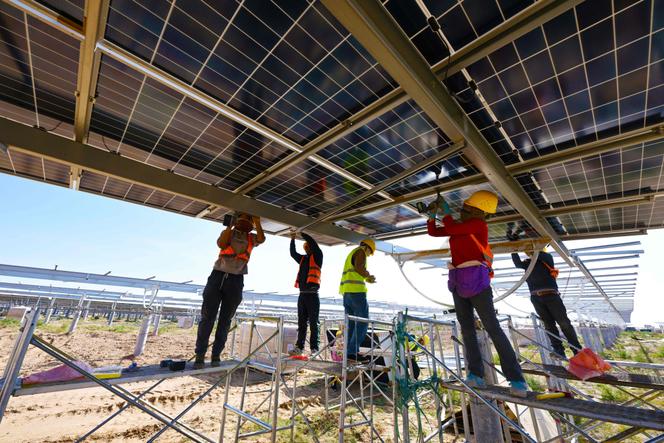


American voters won't be the only ones glued to their TV screens, following the presidential election results, on the night of Tuesday, November 5. On the other side of the world, Chinese officials won't be missing a beat. Indeed, the outcome in Washington is likely to directly influence a decision they will soon have to make.
Moreover, the Standing Committee of the National People's Congress, the supreme body of China's Parliament, is set to meet in the first week of November. Its task: To decide, by Friday, November 8, on the amount for the country's economic stimulus package. Yet a victory for Donald Trump could have a considerable impact on it. If the Republican candidate were elected and implemented his promise to raise tariffs on products imported from China, it could have catastrophic consequences for the country.
In a note published in July, the bank UBS calculated that if the candidate's planned tariff of at least 60% on all products that come from China were applied, it could halve the country's growth in the year it was implemented, cutting 2.5 points of growth.
Long reluctant to provide such support to his country's lame ducks, particularly in real estate, China's president, Xi Jinping, only recently resolved to use the classic stimulus package tool. His idea had, rather, been to promote high-tech industries, to catch up with America in its preferred field. Moreover, he had planned to overtake the US as the world's leading economy by 2035.
He also wanted to avoid falling into the real estate trap that had paralyzed Japanese growth for 30 years. So he pushed investment and exports in electronics, solar energy, electric cars, materials, etc. However, Chinese citizens saw things differently. Many lost everything when the real estate bubble burst, consumption has become sluggish, youth unemployment continues unabated and local authorities are in dire financial straits.
The Chinese government is discovering that everything is connected: Exports and domestic consumption, high-tech and traditional industries. The plan approved by Parliament, which, according to analysts, could reach 2,000 billion yuan (€259 billion), will mainly go towards helping indebted local authorities and recapitalizing banks. This will not be enough to restore the Chinese consumers' morale. Will it be necessary to restart major construction projects, as at the time of the 2008 financial crisis? Xi, having learned from the Japanese counter-example, has resisted this temptation. Perhaps Trump will help him take the plunge.
